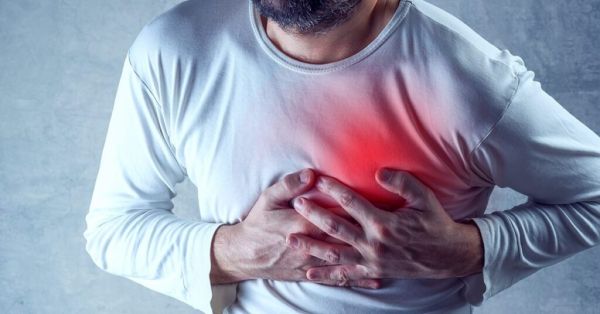
New Delhi, October 20 (Read): Every year, millions of people lose their lives to heart attacksoften because they fail to recognize the early warning signs or mistake them for minor health issues. In reality, a heart attack rarely occurs suddenly — the body usually gives several signals well in advance.
A heart attack happens when the coronary arterieswhich supply oxygen and nutrients to the heart, become blocked due to cholesterol buildup, blood clots, high blood pressure, diabetes, smokingor chronic stress. This obstruction restricts blood flow, leading to damage in the heart muscle.
The most common sign is chest pain or pressureoften described as heaviness, tightness, or a burning sensation. The discomfort may radiate to the left arm, shoulder, jaw, or backand can be constant or intermittent.
Another major symptom is shortness of breath — difficulty breathing even during light activity or while resting. Some people may experience excessive sweatingcold or clammy skin, nausea, vomiting, dizzinessor a sensation of fainting.
Persistent fatigue, weaknessand an unexplained lack of energy are also early warning signs, particularly when they occur without physical exertion. These may indicate weakening of the heart muscles.
In women, heart attack symptoms can be subtle and less typical compared to men. While chest pain is less common, women often report extreme tiredness, nausea, body ache, stiffness, anxiety, and restlessness.
Pregnant women or those with hormonal changes may mistake stomach discomfort or indigestion-like pain for minor digestive issues — but these could be hidden signs of a heart attack. Hence, such symptoms should never be ignored.
If someone experiences these symptoms for more than five minutesimmediate action is crucial:
Call an ambulance without delay.
Help the person sit in a comfortable position.
Loosen tight clothing to make breathing easier.
Avoid giving food or water unless instructed by a medical professional.
Quick medical attention can save a lifeas timely treatment helps restore blood flow and prevent severe heart damage.
Bhupendra Singh Chundawat is a seasoned technology journalist with over 22 years of experience in the media industry. He specializes in covering the global technology landscape, with a deep focus on manufacturing trends and the geopolitical impact on tech companies. Currently serving as the Editor at Readhis insights are shaped by decades of hands-on reporting and editorial leadership in the fast-evolving world of technology.